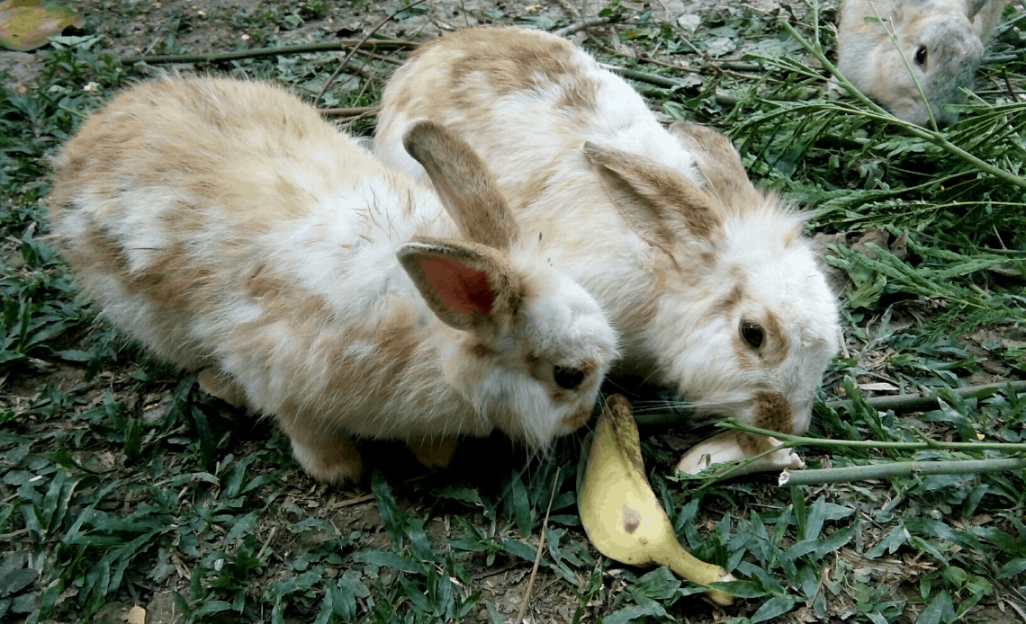Can Rabbits Have Banana Peels?
Rabbits are herbivores and have a diverse diet that mainly consists of hay, fresh vegetables, and small amounts of fruits. As a pet owner, it is important to ensure that you are providing your rabbit with a balanced diet that meets all its nutritional needs. One question that often comes up is whether rabbits can have banana peels. Let’s explore this topic in detail.

Benefits of Banana Peels for Rabbits
While rabbits can safely consume bananas in moderation, the same cannot be said for banana peels. Banana peels are not toxic to rabbits, but they are difficult for them to digest due to their tough and fibrous nature. Rabbits have a sensitive digestive system that is designed to process high-fiber foods, such as hay and leafy greens.
However, banana peels have relatively low fiber content and may lead to digestive issues if consumed in large quantities. They could potentially cause gastrointestinal problems such as bloating, gas, or diarrhea. It is always best to err on the side of caution and avoid feeding your rabbit banana peels altogether.
Alternative Treats for Your Rabbit
If you are looking for safe and healthy treats to offer your rabbit, there are plenty of options to choose from. Here are some alternatives to banana peels:
- Fresh vegetables: Rabbits love a variety of fresh vegetables, such as carrots, bell peppers, and broccoli. These are rich in essential vitamins and minerals.
- Leafy greens: Offer your rabbit a mix of leafy greens like spinach, kale, and romaine lettuce. These are great sources of fiber and help maintain a healthy digestive system.
- Herbs: Basil, parsley, and cilantro can be given to your rabbit in small quantities. These can add a flavorful twist to their diet.
- Hay-based treats: Look for hay-based treats specifically designed for rabbits at your local pet store. These treats are usually high in fiber and provide mental stimulation for your furry friend.
Feeding Guidelines for Rabbits
When it comes to feeding your rabbit, it is essential to follow certain guidelines to ensure their well-being:
- Hay should make up the majority of your rabbit’s diet. Timothy hay is an excellent choice as it is rich in fiber and helps maintain proper dental health.
- Vegetables should be introduced gradually and make up about 10-15% of their daily diet. Offer a variety of vegetables to ensure a well-rounded nutritional intake.
- Fruits should be given in moderation due to their high sugar content. Aim for 1-2 tablespoons of fruit per day.
- Pellets can be provided as a small portion of their diet, but they should not be the main focus. Look for high-quality pellets that are specifically formulated for rabbits.
- Always ensure a fresh water supply for your rabbit. Water should be changed daily.
Remember, each rabbit is unique, and their dietary requirements may vary. It is always recommended to consult with a veterinarian for personalized advice regarding your rabbit’s diet.
Frequently Asked Questions (FAQs)
1. Can rabbits eat bananas?
Yes, rabbits can eat bananas but in moderation. Bananas are high in sugar, so they should be considered a treat and not a staple food in a rabbit’s diet.
2. Are banana peels toxic to rabbits?
No, banana peels are not toxic to rabbits. However, they are difficult to digest and can lead to gastrointestinal problems if consumed in large quantities.
3. What are the risks of feeding banana peels to rabbits?
Feeding banana peels to rabbits can potentially cause digestive issues such as bloating, gas, or diarrhea due to their low fiber content.
4. Can rabbits eat other fruit peels?
It is generally recommended to avoid feeding fruit peels to rabbits. Most fruit peels are tough and difficult to digest, which can lead to gastrointestinal problems.
In conclusion, while rabbits can have bananas as an occasional treat, banana peels should be avoided due to their low fiber content and potential digestive issues. It is important to provide your rabbit with a well-balanced diet that primarily consists of hay, fresh vegetables, and limited amounts of fruits. Always consult with a veterinarian for personalized dietary advice for your furry friend.
Related Articles…
Copyright Notice:
The images displayed here are sourced from the internet, with copyrights held by respective owners. For removal of any copyrighted image, please email us.